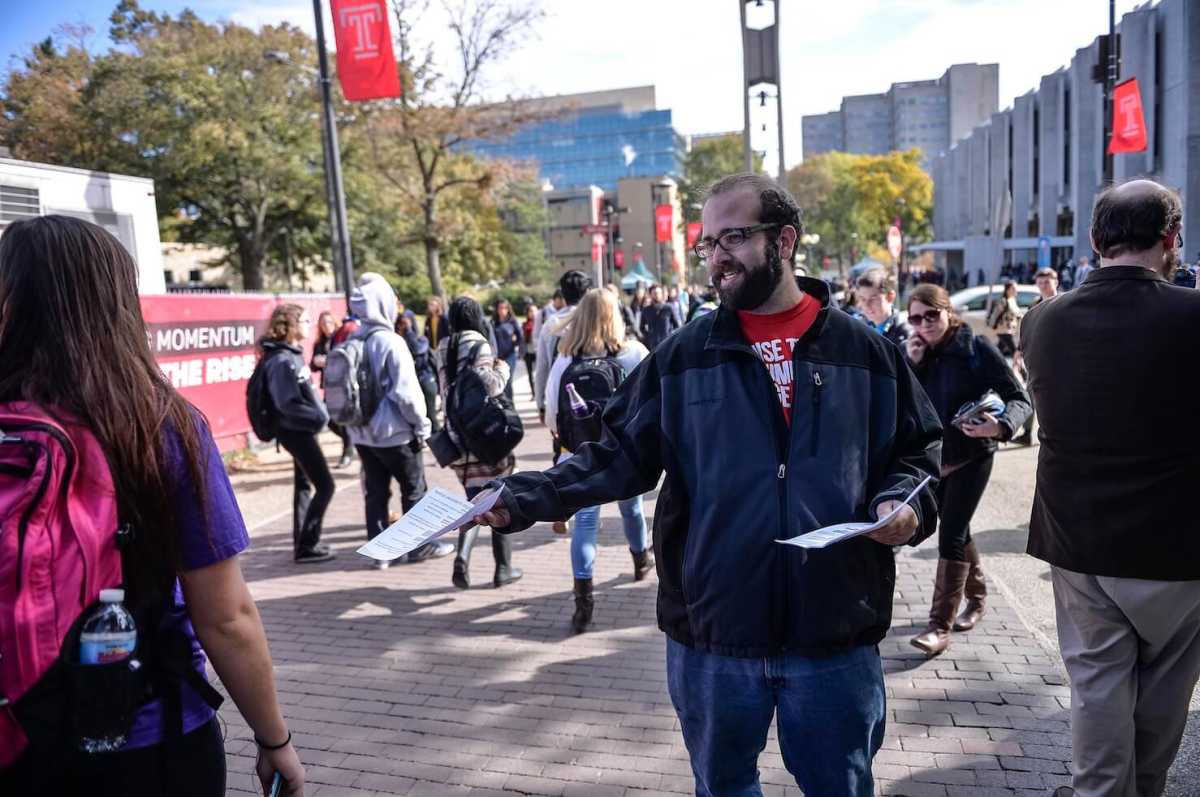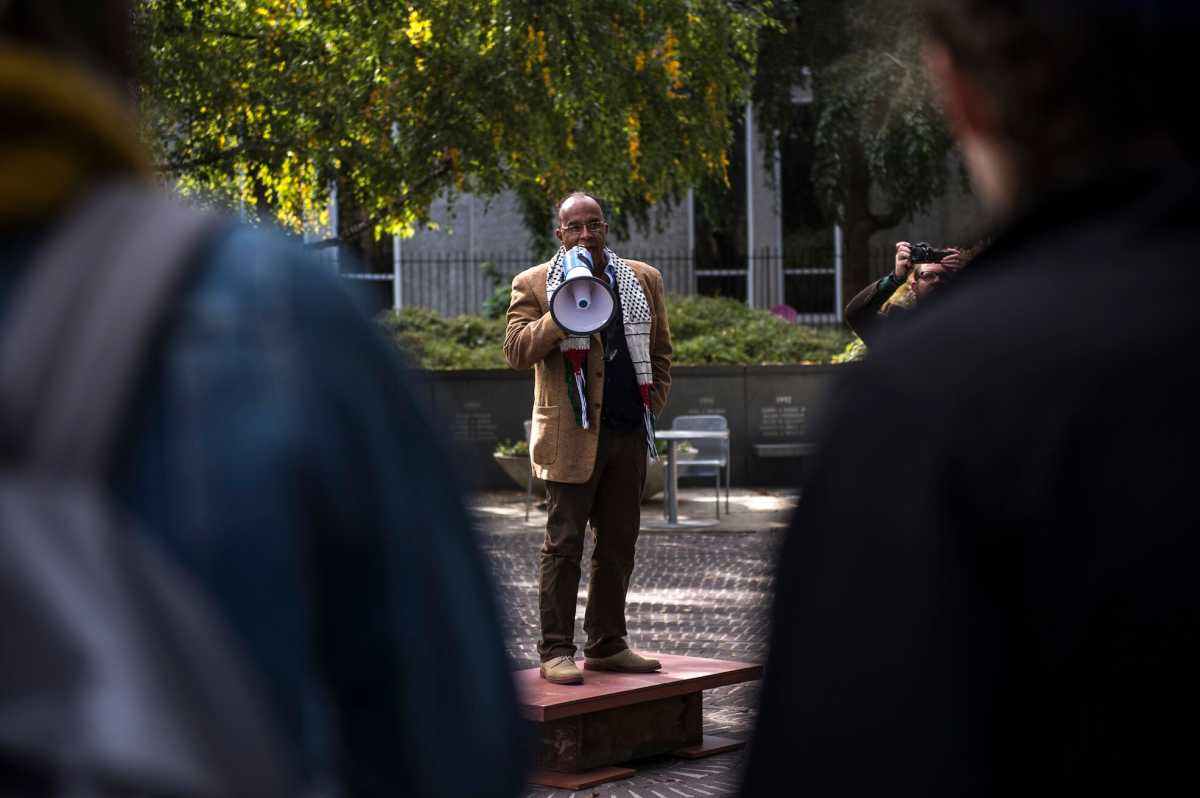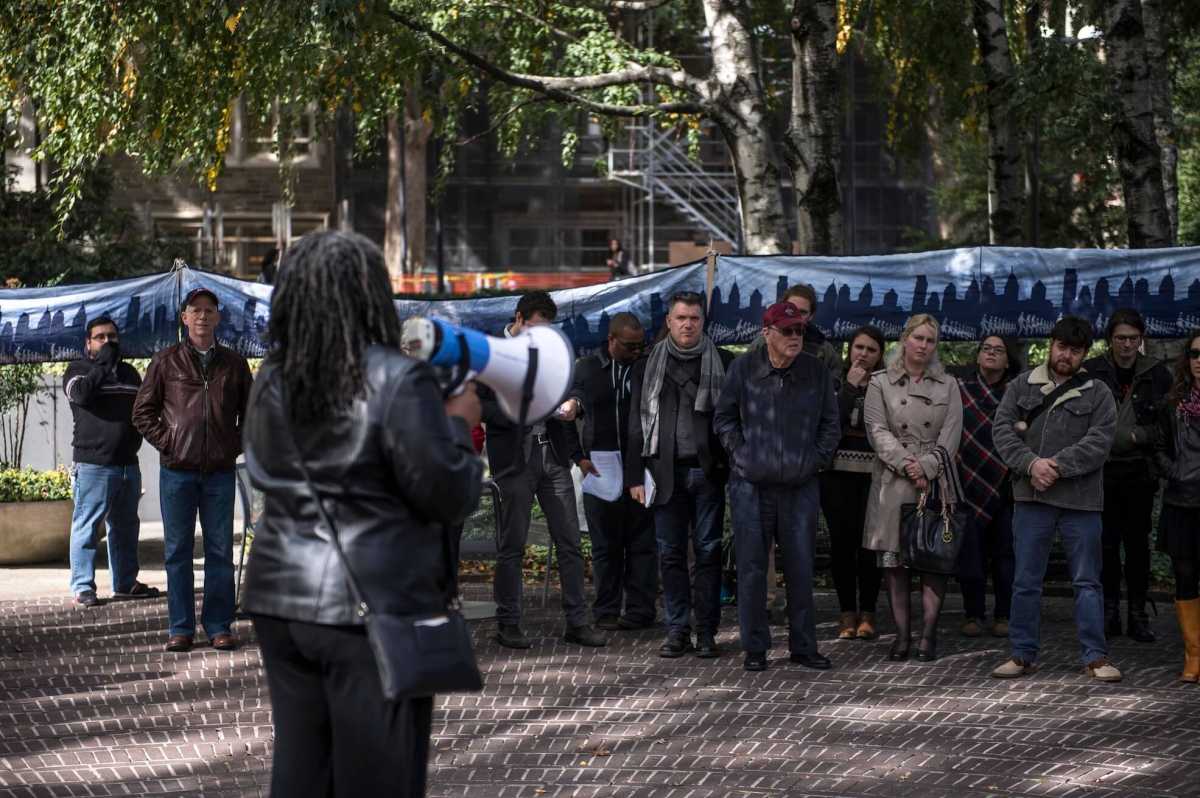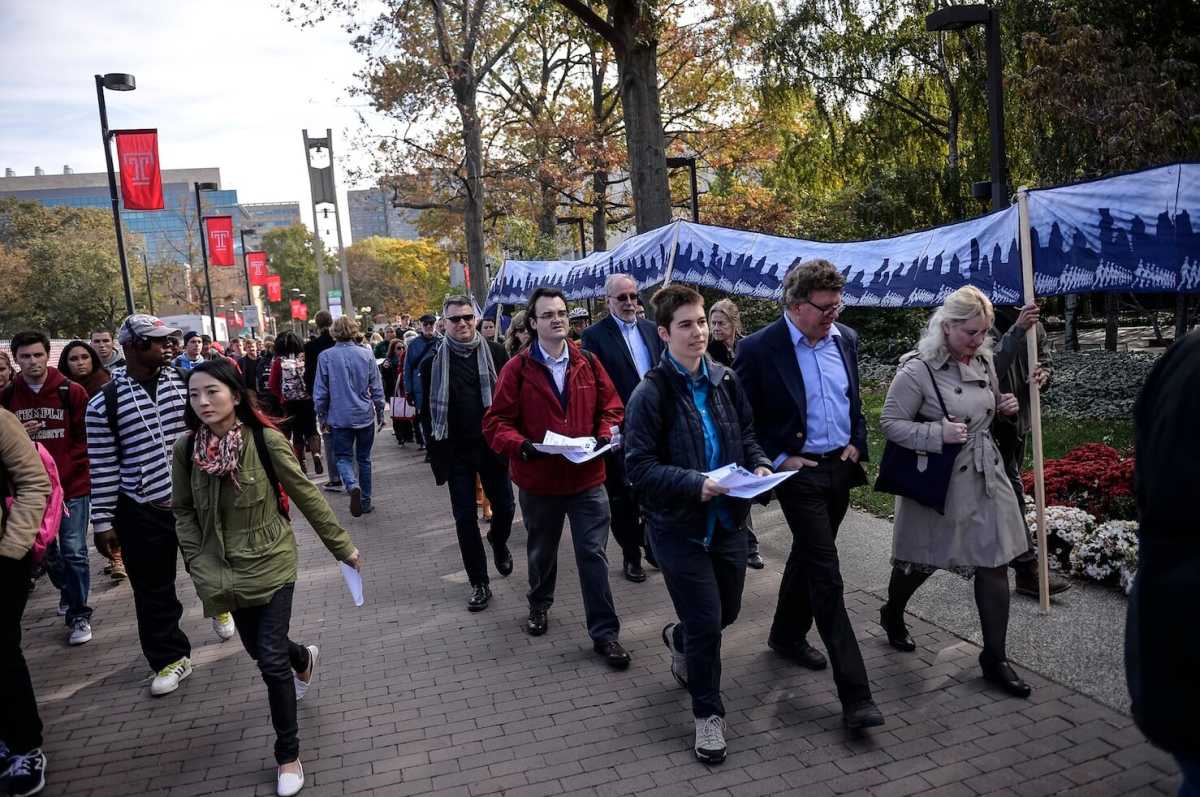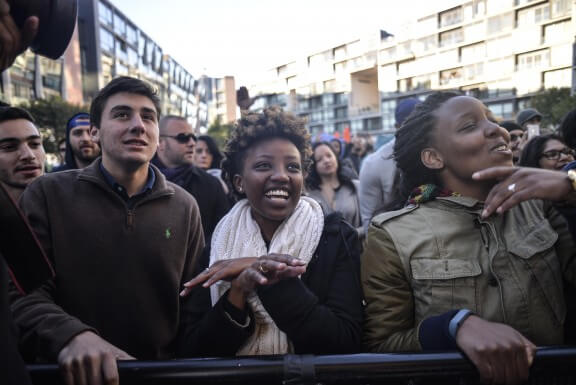A state labor board recently greenlighted a vote by part-time faculty at the city’s biggest university on joining a union.
“Job security, guaranteed pay increases, a voice in our department, affordable health care options, class caps, office space,” listed Ryan Eckes, 36, an adjunct English professor at Temple University and supporter of the union proposal. “These are all things that can be negotiated.” As the Temple Owls football team are enjoying their best season ever and talks are ongoing about a $100 million on-campus football stadium, the school’s roughly 1,400 part-time, adjunct professors are hoping unionization can help raise their fortunes as well. Related link:Philly’s adjuncts seek to rewrite their futures
Adjuncts want to change “the way we get treated at Temple, our wages our lack of any kind of job security or benefits, the general lack of respect we get,” said Maggie Avener, 30, an adjunct math professor at the school. Adjuncts previously voted to authorize unionization in 2014. But Temple disputed the vote and brought the matter before the Pennsylvania Labor Relations Board (PLRB) in Harrisburg. Last month, the PLRB dismissed Temple’s objections and ordered a new vote. Ballots will be mailed out to Temple adjuncts Nov. 9 and are due back by the end of the month. Temple does not support the move, which it called a “merger” of adjuncts into the Temple Association of University Professionals (TAUP), the union representing about 1,400 full-time faculty. “Temple believes that merger is a bad idea for students, the university and for both adjuncts (part-time) and full-time faculty,” said Sharon Boyle, Associate Vice President for Human Resources at Temple, via email. Related link:Open Records director wins tussle with Gov.Wolf
“Temple’s adjuncts, working directly with university administrators, have made substantial progress in recent times including an 8 percent increase to minimum base salary and availability of multi-semester appointments,” Boyle said. “Temple would like to continue this direct engagement, without interference by a conflicted union.” A letter to faculty from Provost Hai-Lung Dai obtained by Metro announcing the PLRB decision pointed out that full-time TAUP members were not able to vote on whether adjuncts should join. Citing “differences” between the two types of teachers, Dai wrote that “merging” the unions “does not make sense.” The school has a fact sheet on Temple.edu explaining their argument against the unionization of adjuncts.
But Temple professor and TAUP president Art Hochnersaid he doesn’t see any conflict between the full-time and part-time faculty.
“They’re sending out all kinds of nasty stuff. They have a website that has all kinds of speculation about what might happen when there’s an adjunct union. They’re making ridiculous claims. It’s scary stories, fairy tales to try to scare people with,” he said. “A year ago, the full-time faculty settled on a new contract with the university,” Hochner continued. “Then they turnaround and act like we’re some kind of monster that is going to tear the university apart. It doesn’t make sense.” Adjunct professors nationwide have been organizing in recent years for better working conditions and unionization. While possessing similar or equal qualification to full-time professors, adjuncts are hired and paid on a by-course basis and can be fired with little or no notice. Meanwhile, universities are hiring more adjuncts than ever before. At Temple, they make up about half of the undergraduate faculty. “They’re running a campaign of false information. They regard us as cheap labor,” said Eckes, who has taught for 10 years and saw his course load drop from two courses at Temple to one this semester. He has made up for the loss in income by taking on more freelance work. “If 51 percent plus one of us vote yes, then we win,” he said. “Then the administration has to negotiate a contract with us.”



